If reading about the people I've visited inspires you to help, you can donate to the Center for Farmworker Families. Every penny given goes directly to these families for clothes, shoes, food, school supplies, and more.
Our day began with a visit to the property of a man I'll call Miguel. He inherited quite a bit of property and also succeeded in gaining money and power in his own right as an influential man in the community and as the owner of one of Cuquio's several agrochemical stores. I heard that he owns three properties and the one we visited, which was 150 hectares (370 acres), was actually the smallest.
When we arrived, we were greeted by several of his five employees. They began by showing us the tilapia farm, located inside a large and very steamy greenhouse. They are able to raise and harvest three groups of tilapia per year, and right now the tilapia tanks are empty. Unlike aquaponic operations I've seen in the U.S. that cycle water through tilapia tanks to grow leafy greens like watercress, here they only produce tilapia. The nutrient-rich (a.k.a. dirty) water is not wasted though: it is used to irrigate the fields.
Next, the workers told us they would show us the cattle, and led us to a muddy, fenced-in yard that was entirely empty. One of the men began hollering, and up in the hills in the distance, I could see little white spots suddenly begin moving down the hill and then disappear. Soon, the cattle began to show up, first the females with their young, and then the males. The workers laughed, saying that the cows come when called because they receive salt each day, but they should know that this was the wrong time of day for them to get their salt. The cattle were Brahman, a breed used for meat and known for their ability to tolerate hot weather. As soon as the cows figured out they weren't getting any salt, they turned around, one by one, and left.
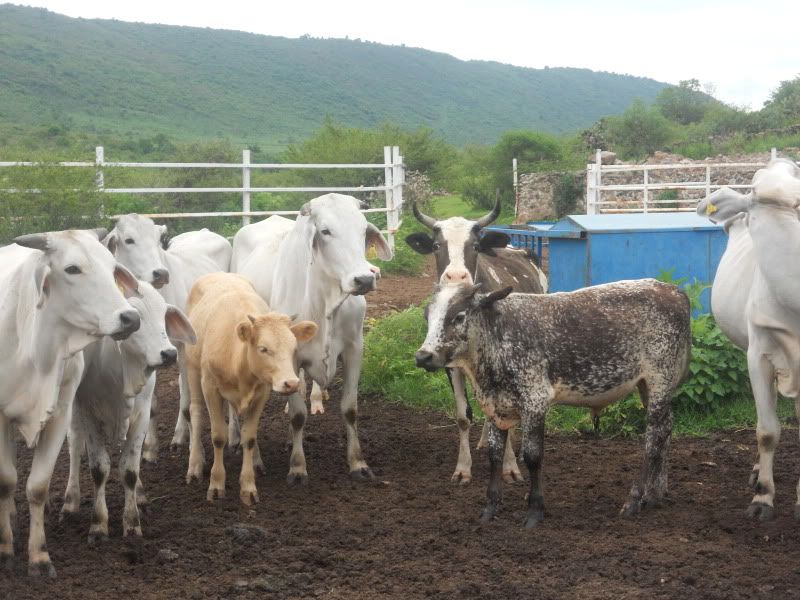
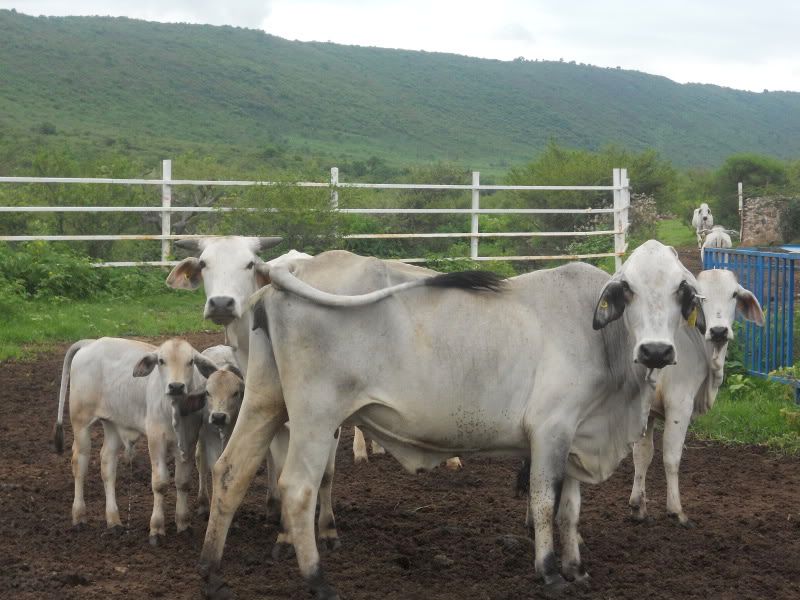
At this point, one of the workers offered to show us the orchard of lemon trees. My fellow traveler, Gus, jokingly asked if the trees were organic. The worker shot him a dirty look and didn't answer. Of course the lemon trees weren't organic. Nothing here was. I decided that I knew what lemon trees looked like and didn't need to expose myself to god knows what pesticides just to see a few more of them, but a few of my friends took off, and ultimately ended up picking and eating some of the chilis also grown on the property.
I went off to see the house. Miguel, the owner of the property, does not live here. He has a house in town. This is just a little cabin, the workers told us, and the man used it only for parties. We walked around the gorgeous, rustic "cabin," noticing both the lovely enormous jacuzzi-style bathtub and the many bottles of pesticides lying around. Outside, there was a covered area with seating, as well as a large unfilled swimming pool. The property extended to include a large area planted in corn as well as an uncultivated area that made the birders in our group go wild, particularly when they saw a bright red vermilion flycatcher flitting about.
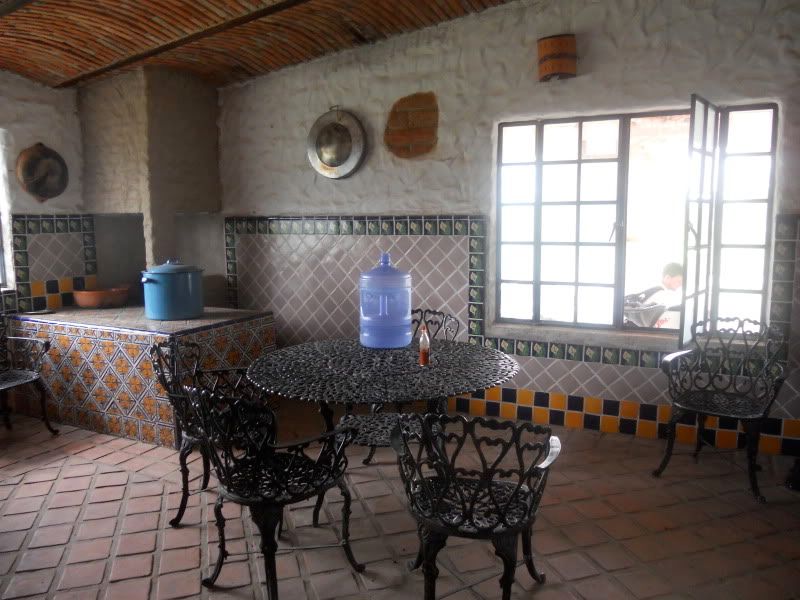
Inside the "cabin"
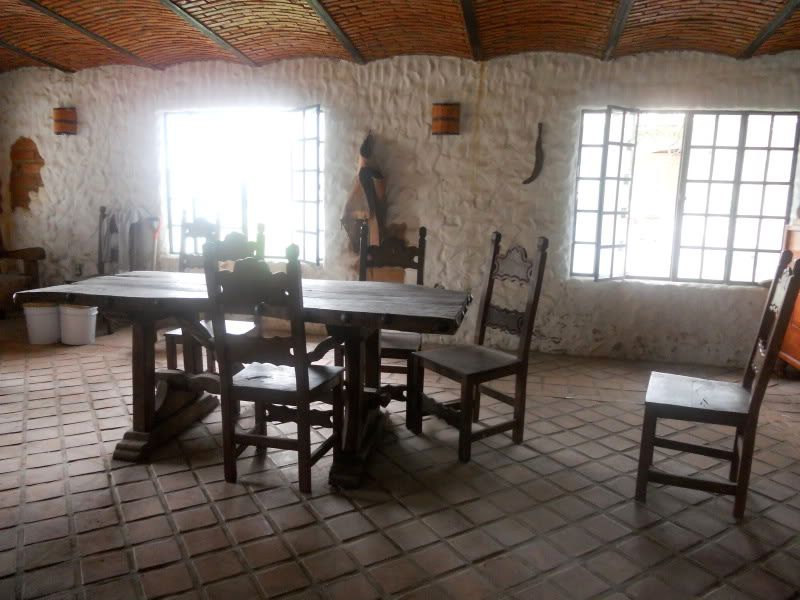
Another view of the "cabin" - the table is incredible and this picture doesn't do it justice
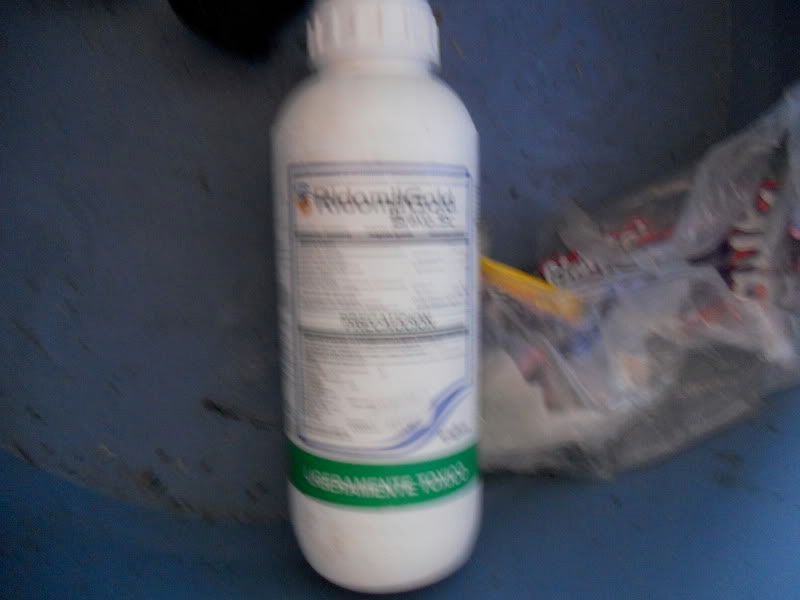
Ridomil Gold, a fungicide made by Syngenta
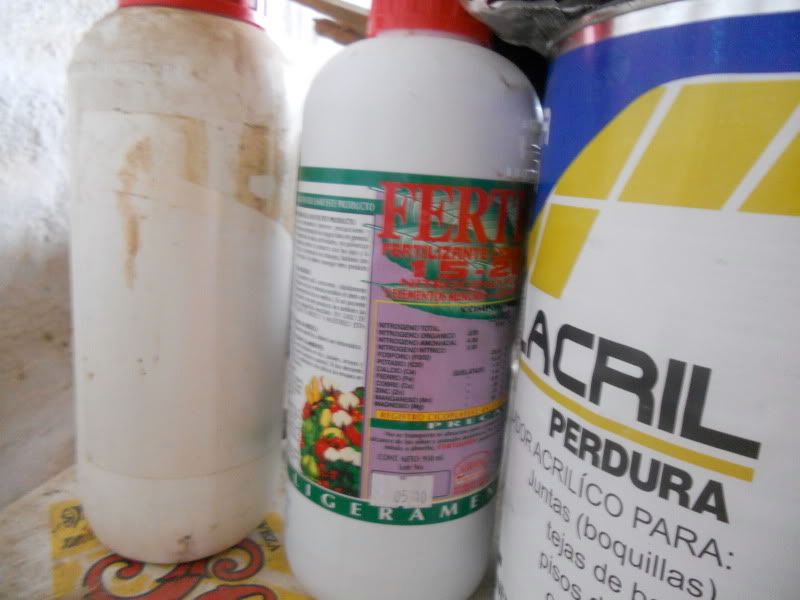
Fertilizer (the middle bottle)
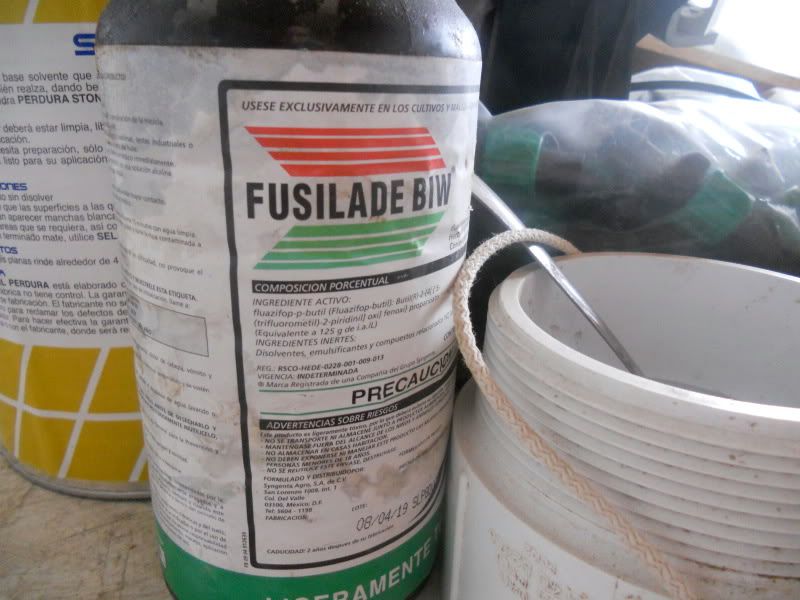
Fusilade Biw, an herbicide made by Syngenta
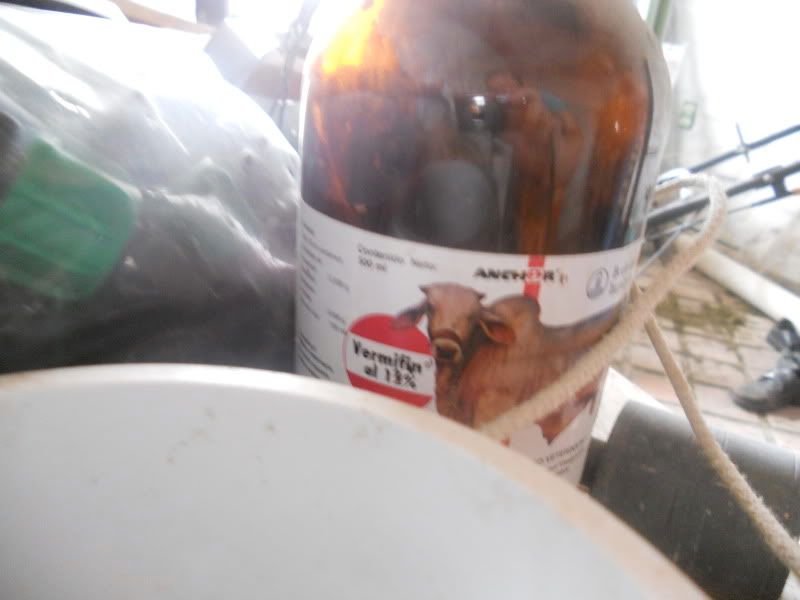
Some cattle drug
For all of the hungry people living in homes with dirt floors, no bathrooms or running water, and insufficient land to produce enough food for the year, there's clearly no lack of food in this region of Mexico. There are rich people around, and everywhere we went, we saw herds of cattle and enormous fields of corn that would make you think you were in Iowa. For all of the people who weed by hand and till the soil with a horse and a plow, there are others who can easily afford the latest in John Deere tractors. (We were told that brand loyalty for farm equipment differs regionally in Mexico, and we were in John Deere territory.) The problem in Jalisco isn't a sheer lack of food.
Ejidos
One interesting point to note is that in the early 20th century, unrest among Mexican peasants forced land reform, resulting in the ejido system. Before that, wealthy hacienda owners owned large swaths of land, and rural peasants owned little or none. Ejidos broke up the enormous haciendas, creating someone communal farms in which landless families were each given a parcel of land based on a lottery system. The ejidos seemed to be a system of usufruct, in which the government allowed the ejidatarios (peasants occupying and farming the ejido land) to live on and cultivate their parcels of land indefinitely, rent-free, and could pass the land on to their children. However, these parcels could not be sold, and the ejidatarios would lose their rights to the land if they failed to cultivate it for more than two years.
However, to make way for NAFTA, in the early 1990's, Mexico undid Article 27 of its constitution, which dealt with ejidos. Ejido parcels were now the property of the ejidatarios, and they were allowed to sell the land if they wished. Many have sold their land, resulting in fewer landholders and more consolidation of land in the hands of wealthy landowners like Miguel. Since there's precious little work to be had in the countryside and many children aren't educated beyond 6th grade, a child can be quite screwed if his or her parent sells their ejido land, leaving the child with no land to use for food production, no education, and no job.
No comments:
Post a Comment